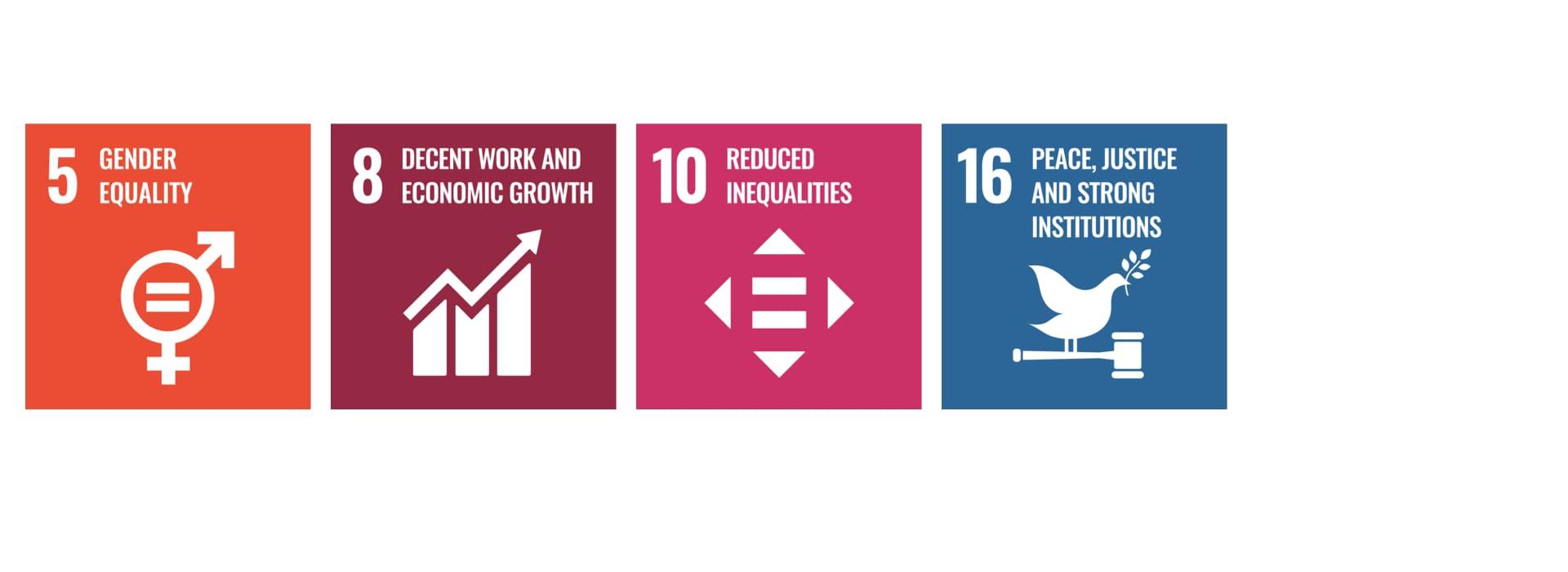Gender quotas, the "right thing" to do?
8 Marzo - 2022
Nia Plamenova
Lecturer in the Business & Management Strategy Dept.
Lecturer in the Master in Human Resources Management
__
Gender quotas are without a doubt one of the most controversial topics in the equality realm. The main merit of the quota approach is that it's aimed at fixing the system and not fixing the women. Still, various sources point to generally negative perceptions about quotas in both genders.
Many of the negators of quotas identify as feminists and view quotas as a "pity vote", forcing competent professional women to bare the stigma of preferential treatment. Research and practice have shown that with mandatory quotas, there is an important risk of women doubting their own competence, as well as being perceived as less competent by others.
When quotas are applied in organizations where there is no real commitment to equality, it is women who are hired who end up paying the price for the discrepancy
Feeling like you were hired so that someone can fill their diversity quota is a hindrance for the empowerment of all employees, yet underneath it lies a larger problem: true buy-in from company leaders. When quotas are applied in organizations where there is no real commitment to equality, it is women who are hired who end up paying the price for the discrepancy.
Further, pro-quotas leaders are also divided into people who support quotas because "it's the right thing to do" and those who support quotas out of genuine belief that enhances productivity and value in the long-term. The latter are a minority, yet they are a necessary condition for gender quotas to be applied properly, without women perceiving subtle hints that they might not be hired solely based on merit.
Quotas are not just numbers
Getting leaders and managers to true buy-in is challenging as we are lacking reliable and sufficient data and research about the effects of gender quotas across different occupations, industries, etc. There is, however, a good reason for that –the general idea behind quotas is that the pendulum needs to swing the other way before it can find its balance–, compensating women for opportunities that have been withheld from them. This takes a very long time, and we are still gathering evidence about the long-term impact of quotas, as more measurement points across time are needed to draw sound conclusions.
Representation is key for achieving gender equality, still, prioritizing it to an extreme moves people towards mechanistic changes and away from creating real re-distribution of power
There is evidence, however, that quotas do serve to improve representativeness in politics, leadership positions, science and other fields, albeit very, very slowly. Representativeness is a vital element of gender equality, both for decision-making (e.g. quotas in politics) and for providing examples for the future generations (quotas in science). The problem is that we are still seeing representativeness mostly through the lens of numbers, and chasing improved numbers is placing the emphasis in the wrong place.
Representation is key for achieving gender equality, yes, still, prioritizing it to an extreme moves people towards mechanistic changes (getting a certain number of women on boards of directors, for instance) and away from creating real re-distribution of power.
For instance, in Norway, one of the pioneering countries implementing gender quotas, female board directors perceived they have less decision-making power than male directors, years after the "4o per cent women" rule was introduced. Unsurprisingly, the results on the expected improvements in decision-making and performance due to including more women in boards of directors were not convincing, according to the Economist. The situation is a dozen times worse in developing countries with traditional gender norms, where quotas "allow" women to be represented as long as they comply and stay silent.
Gender-sensitive organizational culture
The willingness to hire women on its own does little for gender equality, if we are unable to really harnesses the diversity of viewpoints, reshape power structures and decision processes. What is worse, quotas for numbers' sake serve as a smokescreen to those who don't really care about gender equality –once inside a company's culture it is obvious if leadership did not see anything wrong with the system and are solely hiring women to meet legally or professionally imposed standards.
Individual experiences should matter to leaders as they provide information to better understand, cover blindspots in a company's leadership and bring awareness
A proper application of quotas requires cultivating a real community and social support behind the gender equality initiative in an organization, and a culture with a minimum discrepancy between what is being said by the organization and what is experienced by women. Individual experiences should matter to leaders, not because we should coddle someone's feeling but because they provide information to better understand, cover blindspots in a company's leadership and bring awareness.
The cliché that "an assertive male leadership will be perceived as strong, while an assertive female leader will be perceived as a bitch" does not even begin to describe the nuances of the perceptions and implicit biases that permeate our thinking about gender roles at work.
Within those who consider gender equality to be important, it is both man and women's responsibility, every day, to calculate where it is necessary to step up, step down, reinforce someone or silence someone. It is hard, uncomfortable, and you will not gain anything from it. It is hard to recognize that both genders are struggling with the same insecurities and problems, but we are not struggling on the same playing field. Gender quotas are not the greatest idea, but we don't have a better one now. They are simply a way to even out the playing field. Maybe in 20 years from now. They are still worth the try.

